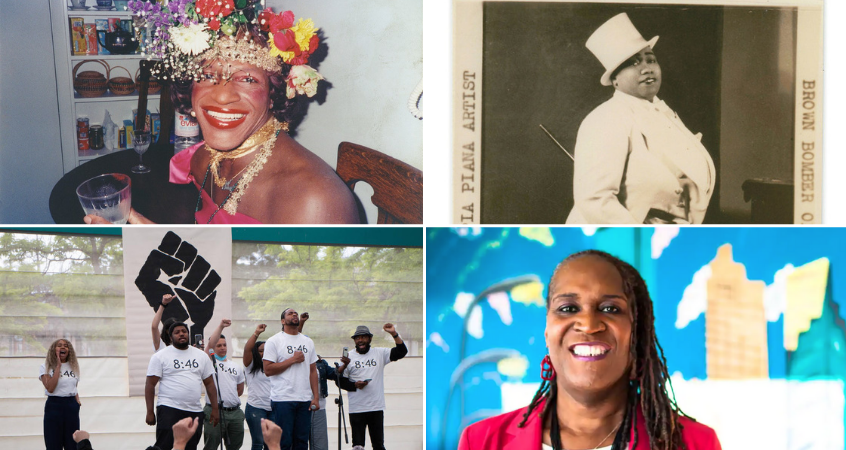In honor of #BlackHistoryMonth, we’ll be lifting up stories of Black LGBTQ+ activists and change makers that are so often left out of the broader narrative. Throughout February, keep your eye out for these stories on our social media and on this page of historical Black LGBTQ+ leaders, Black LGBTQ+ leaders making history here and now, and Black LGBTQ-led and serving organizations who are making history in the Northwest through their incredible work serving Black LGBTQ+ communities locally.
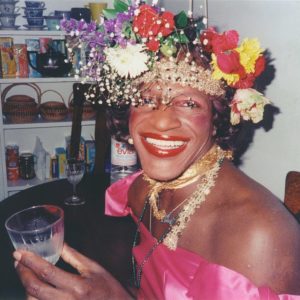
First up: the incomparable Marsha P. Johnson. A movement leader, trans activist, co-founder of Street Transvestite Action Revolutionaries (STAR), and prominent figure in the Stonewall uprising of 1969, Marsha spent her life organizing alongside other visionary activists to provide critical housing, support, and encouragement to LGBTQ+ youth and sex workers experiencing homelessness. Read more about her life and legacy here.
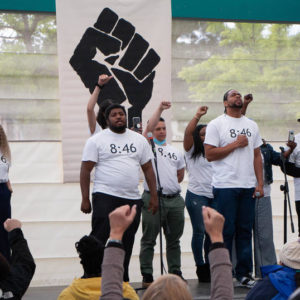
So excited to kick off our #BlackHistoryMonth #GranteeSpotlights with The Montana Racial Equity Project! Based in Bozeman, but with work spanning statewide, The Montana Racial Equity Project is the only Black-led nonprofit organization in Montana. Their queer and trans youth of color program (QTYOC or Qutie) supports LGBTQ+ youth of color learning about the unique experiences, barriers, and successes of QTYOC in Montana. Simultaneously, MTREP has lead most of the organizing efforts of the #BlackLivesMatter uprisings across Montana, organizing the biggest rally in Bozeman with over 5,000 people in support of racial justice! Learn more about how to get involved at themtrep.org.
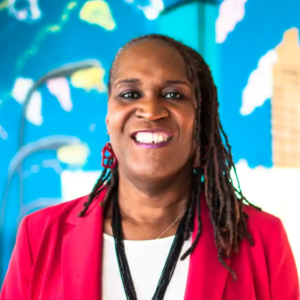
We’re keeping the ball rolling on our #BlackHistoryMonth story series with Andrea Jenkins, who made history in 2017 as the first openly trans Black woman to be elected to office in the United States. The Vice-President of the Minneapolis City Council, Andrea is a writer, performance artist, poet, transgender activist, and racial justice organizer. Learn more about Andrea here.
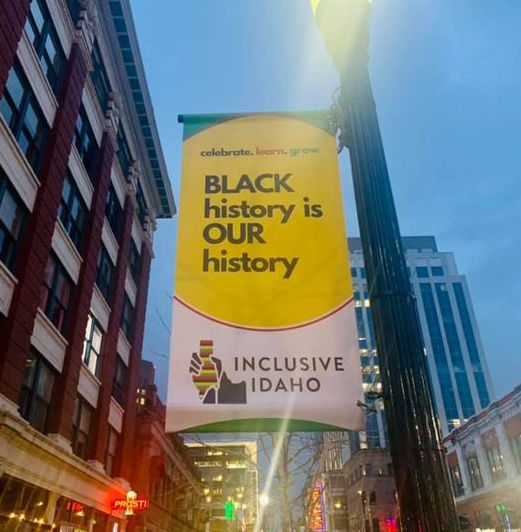
#GranteeSpotlight: Founded in 2020, Inclusive Idaho started as a vigil for George Floyd and other Black Americans murdered by police. Organizers saw a need to do more work around racial justice, so Inclusive Idaho was born: a BIPOC-led group whose mission is to promote inclusivity as the solution to the societal barriers of belonging and advancement for oppressed and marginalized groups. Learn more at inclusiveidaho.org.
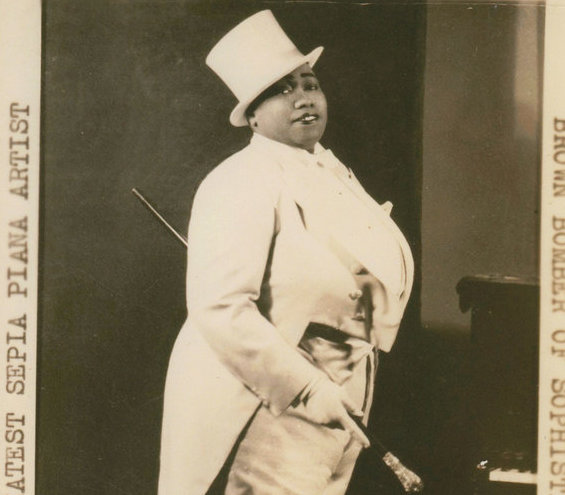
Next up in our #BlackHistoryMonth story series is performer and Black lesbian icon, Gladys Bentley. In her trademark top hat and tuxedo, Bentley was Harlem’s most famous lesbian figure by the early 1930s—and for a time, was among the best-known Black entertainers in the United States. After decades of success, Gladys was pushed out of entertainment in an increasingly conservative and oppressive society, and was eventually forced to hide who she was in order to perform and survive. The lasting impact she has had on music and the entire entertainment industry is undeniable. Watch a mini-documentary about her life and legacy here.
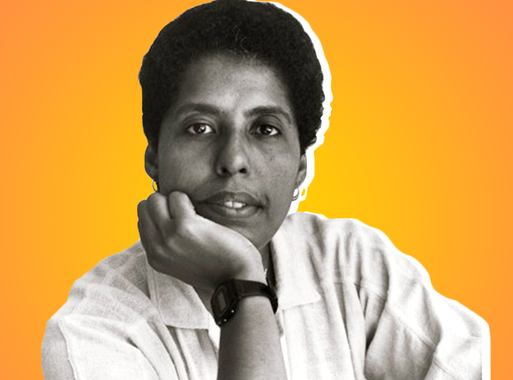
Barbara Smith is a Black lesbian writer and activist who has continuously shaped Black feminism. In 1974, she co-founded the Combahee River Collective, which asserted the necessity of addressing Black and LGBTQ+ women’s needs within the feminist and Civil Rights Movements. Smith and her colleagues are credited with originating the term “identity politics”: an inclusive political analysis for contesting the interlocking oppressions of race, gender, class, and sexuality. Alongside Audre Lorde, Smith is also known for co-founding the Kitchen Table: Women of Color Press: one of the first independent presses in the country committed to publishing women of color. Learn more about Smith and her work here.
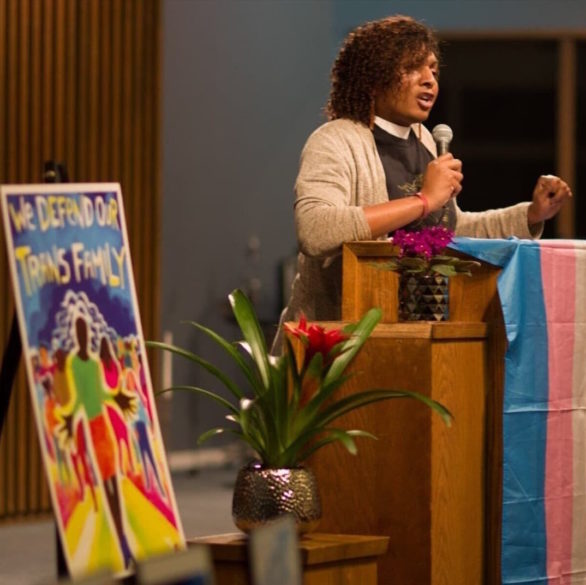
#GranteeSpotlight: Based in Seattle, Lavender Rights Project is committed to dismantling the barriers that keep LGBTQ+ communities in WA State from understanding, advocating for, and accessing their legal rights, with the foundational perspective that takes direction from and effectively serves Black trans people first and foremost. Funding from Pride Foundation supports the organization’s financial health and legal services, which are in high demand as more community members are forced to navigate unemployment, benefits, and discrimination during #COVID19, and momentum around the #BlackLivesMatter movement. This #BlackHistoryMonth, get involved with history in the making at lavenderrightsproject.org.
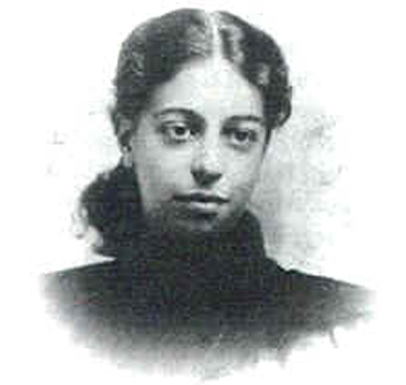
Angelina Weld Grimké was a Black queer poet, playwright, journalist, and teacher, who primarily wrote about racism and systemic oppression. Grimké is known for her poetry and powerfully political play “Rachel” (1916), commissioned by the NAACP to counteract hateful narratives about Black communities, and the first play written, directed, and performed by an all Black cast. Despite being written over 100 years ago, the play’s message still resonates today: the protagonist grieves after witnessing the injustices of Black life in America, vowing never to become a mother to avoid suffering the loss of her own children, the way so many others have, to racist violence. Learn more about Grimké’s life and work here.

#GranteeSpotlight: Based in Portland, OR, Freedom to Thrive (FTT) creates leaderful movements that center healing, wellness, and safety outside of policing, by convening spaces of shared learning and political education through a pro-Black, gender-affirming lens. Centering abolition in all programming, FTT trains and helps build capacity for community leaders and organizations. Funding from Pride Foundation supports FTT’s ongoing training, capacity building, and leadership development work. Learn more about FTT here.
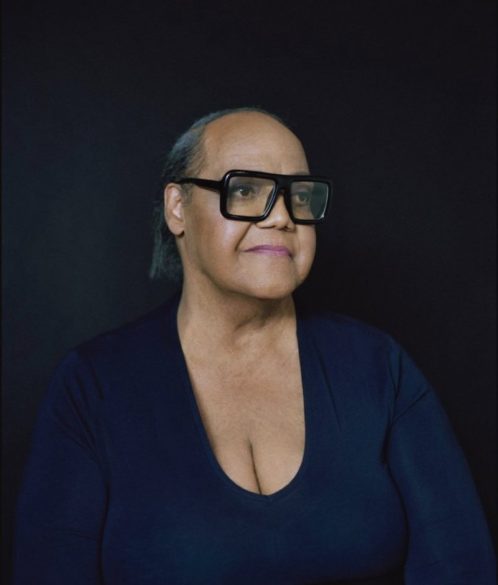
Next in our #BlackHistoryMonth story series: Miss Major Griffin-Gracy! Miss Major is a Black trans woman well known for her role in the Stonewall Riots, largely considered one of the most important events in the ongoing fight for LGBTQ+ rights in the U.S. As a former sex worker who has also experienced homelessness and incarceration, Miss Major is propelled to help, mentor, and support trans women of color forced to navigate violent and unjust systems. As the former Executive Director of the TGI Justice Project, she worked to end human rights violations and abuses against trans women of color and gender non-conforming people disproportionately incarcerated and targeted by the prison industrial complex. Find out more about her life and work here.
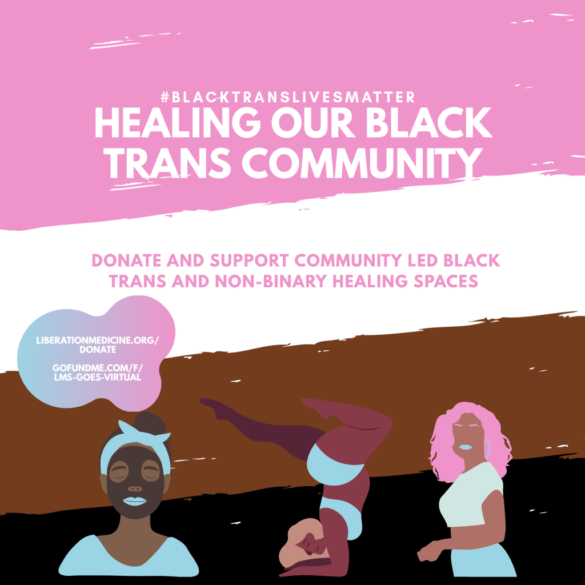
#GranteeSpotlight: Based in Seattle, WA, Liberation Medicine School is an emerging collective of Black trans and queer organizers whose mission is to develop a decolonial and Afro-Indigenous-rooted healthcare system—primarily in the form of a medical center and affiliated teaching programs—that fosters medical autonomy within the diasporic Afro-LGBTQ+ community. Because #COVID19 has further threatened the stability and wellbeing of Black trans and gender nonconforming organizers, funding from Pride Foundation supports their work to find new and innovative ways to support the continued healing and liberation of Black, African, and Indigenous queer and trans folks. Learn more at liberationmedicine.org.
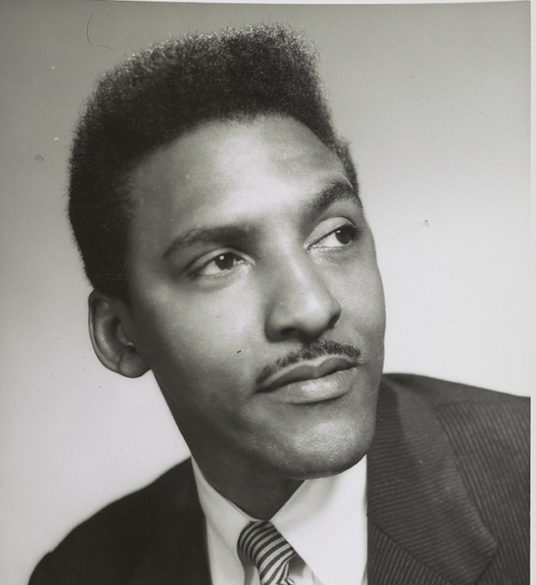
Bayard Rustin was a Black, gay civil rights activist and leader, best known for organizing the March on Washington (1963): one of the largest nonviolent protests ever held in the U.S. This event, where Martin Luther King Jr. delivered his famous “I Have A Dream” speech, was considered instrumental in the passing of the Civil Rights Act of 1964 and the National Voting Rights Act of 1965. Due to criticism over his sexuality, he usually acted behind the scenes as an advisor to other civil rights leaders, including MLK Jr., whom Rustin’s influence helped mold into the symbol of nonviolence we recognize today. Rustin’s focus on civil and economic rights, and his belief in the dignity of all people, remain as relevant today as they were at the peak of his activism. Learn more about his life and work here.

A self-described “Black, lesbian, mother, warriot, poet,” who better to wrap up our #BlackHistoryMonth spotlight series with, other than Audre Lorde? Lorde dedicated her life and talent to addressing racism, sexism, classism, capitalism, and heterosexism. Her work highlights the necessity of organizing across intersectional lines in order to achieve our liberation, creating space especially for Black and queer women in the feminist movement, to “bridge some of those differences between us, for it is not difference which immobilizes us, but silence. And there are so many silences to be broken,” she wrote in “The Transformation of Silence into Language and Action.” As an internationally recognized activist and artist, Lorde is an undeniable icon who has left a lasting legacy. Learn more about Lorde and some of her work here.
